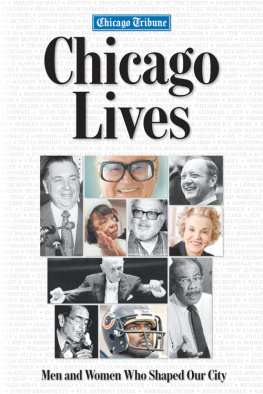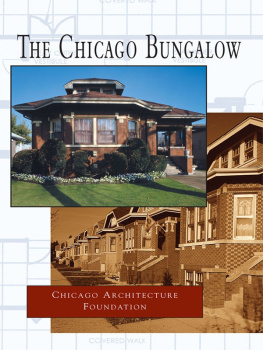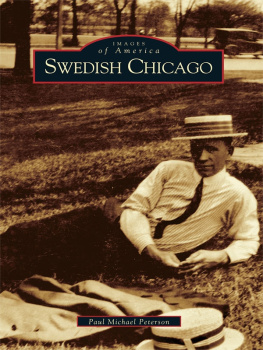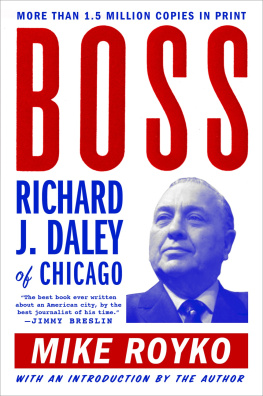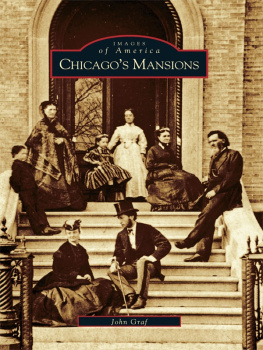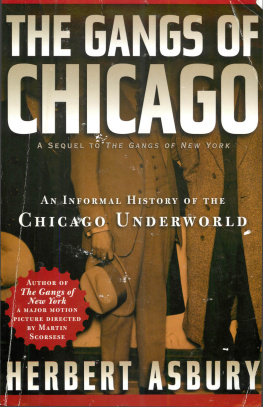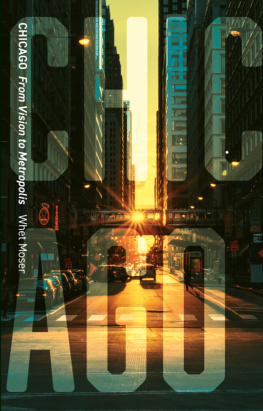Introduction
Had it not been for a serendipitous letter passed between her neighbors, Zofia Kuklo might have been dismissed as just another fading, elderly widow, and it would have been a crime.
She died on the Northwest Side as the twentieth century drew to a close, a quiet, churchgoing woman whod become part of the Chicago landscape. Almost as secretive as shed been in Poland during World War II, she blended into the immigrant neighborhood she lived in so completely that nobody in Chicago knew shed once rescued more than a dozen Jews from the Holocaust.
For years, she hid them in her barn. Perhaps from the long habit of keeping silent among Nazis, Mrs. Kuklo said little after the war, and even less after immigrating to the United States twenty years before her death in January 2001.
Word reached her Chicago neighbors after a letter from one of the Holocaust survivors helped get Kuklos name memorialized in Israels Yad Vashem Holocaust Memorial in 1994.
When she was recognized, her exploits were a staggering revelation for local Polish and Jewish groups, for whom Kuklo became an instant icon. Her story was also one of those obituary -section discoveries for readers that shows the fine line that sometimes separates a touching account from total obscurity.
On street corners and in office towers, in barrooms and in back rooms, the history of Chicago in the twentieth century was played out in the lives of its residents. As is often the case with history, the full impact of those lives wasnt known until they were gone.
At the Chicago Tribune s obituary desk, the chances to tell the stories came by the dozens each day. Possibilities were circled in death notices and waited behind the blinking red lights of telephone messages. By the next day, readers with their morning coffee would learn about neighbors theyd long been fascinated with or whod slipped their attention. The obituaries are one of the best-read sections of the paper.
Failing to remember Kuklo clearly would have been a grievous omission, but her clandestine accomplishments made hers an exceptional case. Imagine the stirring tales, the fascinating events and accomplishments in ordinary lives that go untold because nobody thinks to present them as noteworthy.
We dont even have to imagine.
A paid death notice appeared in the Chicago Tribune on August 8, 2000, as follows:
Margaret M. Mullane, ne Hopkins, beloved wife of the late John P. Mullane; loving mother of Jack (Gerry), James (Mary), Philip (Susan), and Robert Mullane; cherished grandmother of Sean, Steve, Tricia, Chrissy, Jack, Kiley, and Lucy; fond great-grandmother of Joseph and Colson. Visitation Wednesday, 4:00 to 9:00 pm . Funeral Thursday, 9:45 am . From Andrew J. McGann & Son Funeral Home, 10727 South Pulaski Road, to St. Germaine Church for Mass at 10:30 am . Interment St. Mary Cemetery. In lieu of flowers, donations to the American Cancer Society would be appreciated.
The pen that would have circled that death notice and made it a news obituary assignment passed by. There are a lot of beloved wives in the world. But Mullanes family was lying. Her son James later explained why: We didnt lie because we were ashamed of my mothers profession. It was simply that we were advised, Unless she is a doctor or a lawyer or teacher, etc., most put down housewife. Being in the fog of grief, we went along.
As it turned out, Mullanebetter known as Peggywas a waitress, working for the past twenty years at Sonnys Inn, where the Illinois Central tracks begin in the South Chicago neighborhood. She opened the restaurant every morning at 5:30 for regular commuters, even though the place wasnt supposed to open until 6:00. For countless people each working day for twenty years, she provided the first smile and first cup of coffee of the day. With the change they left her, Mullane put her four sons through college.
Titans used to dominate the obituary page just as much as they did society columns and news sections. Women, to a large extent, are recent appearances. And more and more often, room is being made for regular people.
As it turns out, their stories are not so ordinary, and a lot of the best ones are in this book.
What makes a good obituary?
The best ones tell charming stories that lend a little magic, a little wonder to everyday life. One neednt be a titan to qualify.
Take Donald Luchene, a Blue Island man who worked as a technician at St. Francis Hospital and Health Center and, incidentally, collected more than three thousand flamingo knickknacks, dressed in flamingo motifs, kept a flock of plastic flamingos in his front yard, and opened his mail with a flamingo letter opener.
He gathered flamingos fashioned from glass, wood, papier-mch, concrete, and plastic. He wore a flamingo earring and hung a flamingo from his rearview mirror. Lots of folks in Blue Island knew who the Flamingo Man was when the topic came up in conversation.
In a world that embraces the rational first, his hobby was a pleasant reminder that not everything has to make perfect sense. In a way, his obituary made us happy to know that somebody, somewhere in the world, did what Luchene didbecause if he could do that, anything is possible, no matter what the rational world says.
Luchenes whimsy aside, the obituaries also offer sober reflection, a degree of comfort that comes from encouraging the longer view.
How else to take the obituary of Carl P. Miller Sr., 100, who spent his estimable lifetime discrediting modern medical advice against eating red meat, drinking booze, or working backbreaking days of physical labor?
Other centenarians attribute their longevity to temperance and moderation, but Miller ate and drank what he wanted. His mother was a good cook, he told his family, and he ate a lot of red meat and potatoes over 100 years.
He also had a soft spot for Scotch old-fashioneds and drank them without fail every Saturday until the week before his death in April 2000.
He saw Chicago move from kerosene to gas lighting to electricity, remembered when indoor running water became widespread, and experienced the invention of such things as radio and television.
As in Kuklos instance, the obituary section can remind us of terrible truths that the world would rather forget and the costs they exacted on people. (Kuklo, for instance, could not discuss her encounters with the Nazis without trembling. Her family said she would sometimes cry for days afterward.)
Very often, we newspaper writers highlight how badly society can behave. If we focus on individual lives at all, we celebrate only the people who amass the grandest of grand achievements.
Most people dont fit into either category. The majority of everyday life falls somewhere in between.
Will all the people in the obituary sectionthe nontitansbe remembered by historians at the end of the twenty-first century? Ten years from now?
Probably not, beyond the memories of their families. But no neighborhood, no industry, no county fairground, no skyline, no coffee shop would have been complete without them, and likely, quite a few lives wouldnt have been either.
There will always be room for giants on the obituary pages.
But some of the best stories are the small ones. Enjoy.
James Janega
Chicago Tribune obituary reporter
Section IX. Cop and Robbers
Say Chicago anywhere in the world where people dont speak English, and it happens immediatelytheir hands curl into handguns. Chicago, they say knowingly. Bang, bang. Of course.
If ever a towns mystique was founded on cops and robbers, it is Chicago. The city is what it is because of men like Al Capone and Eliot Nessbut also for the mark of reputed Chicago mob boss Joseph Ferriola, or Pops Panczko, Chicagos most famous thief, or Captain Frank Pape, the citys toughest cop.
Next page
